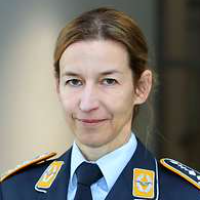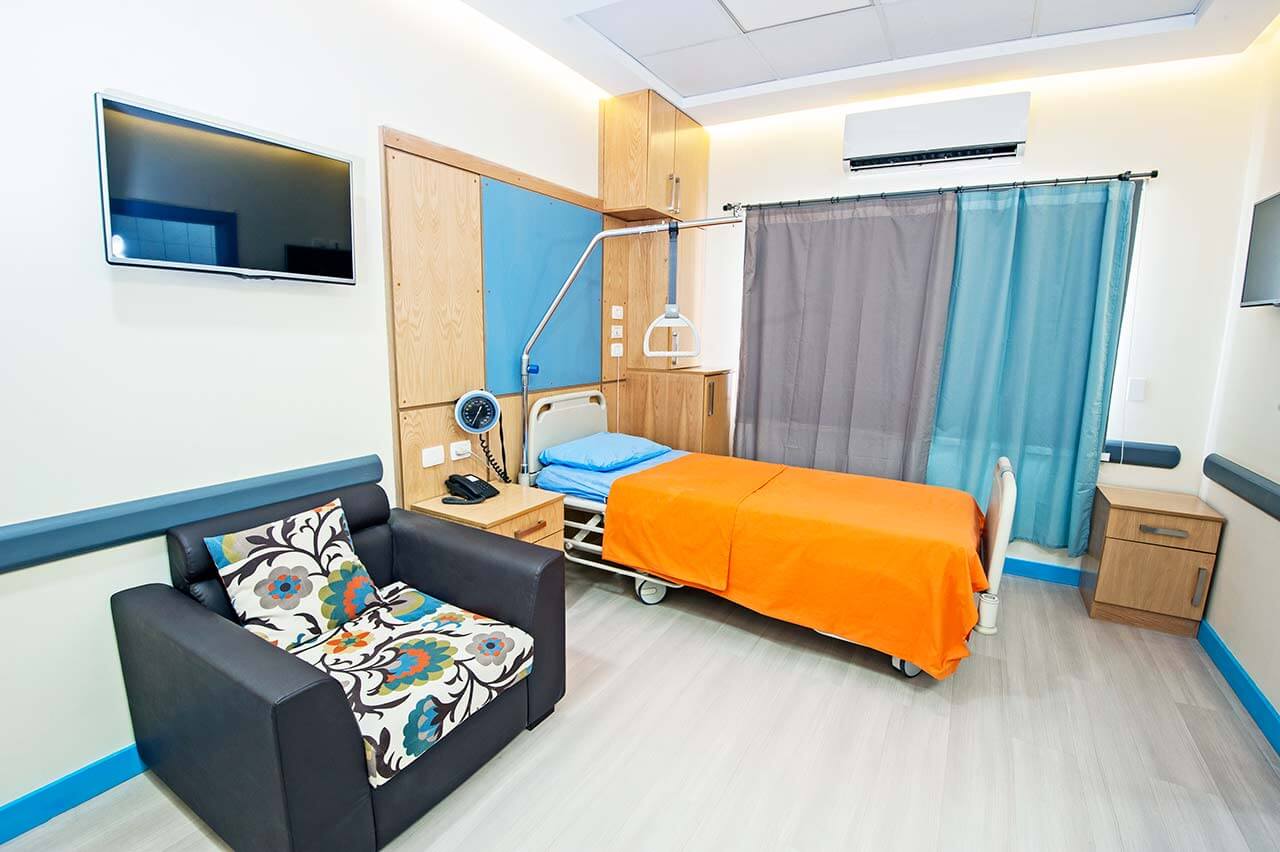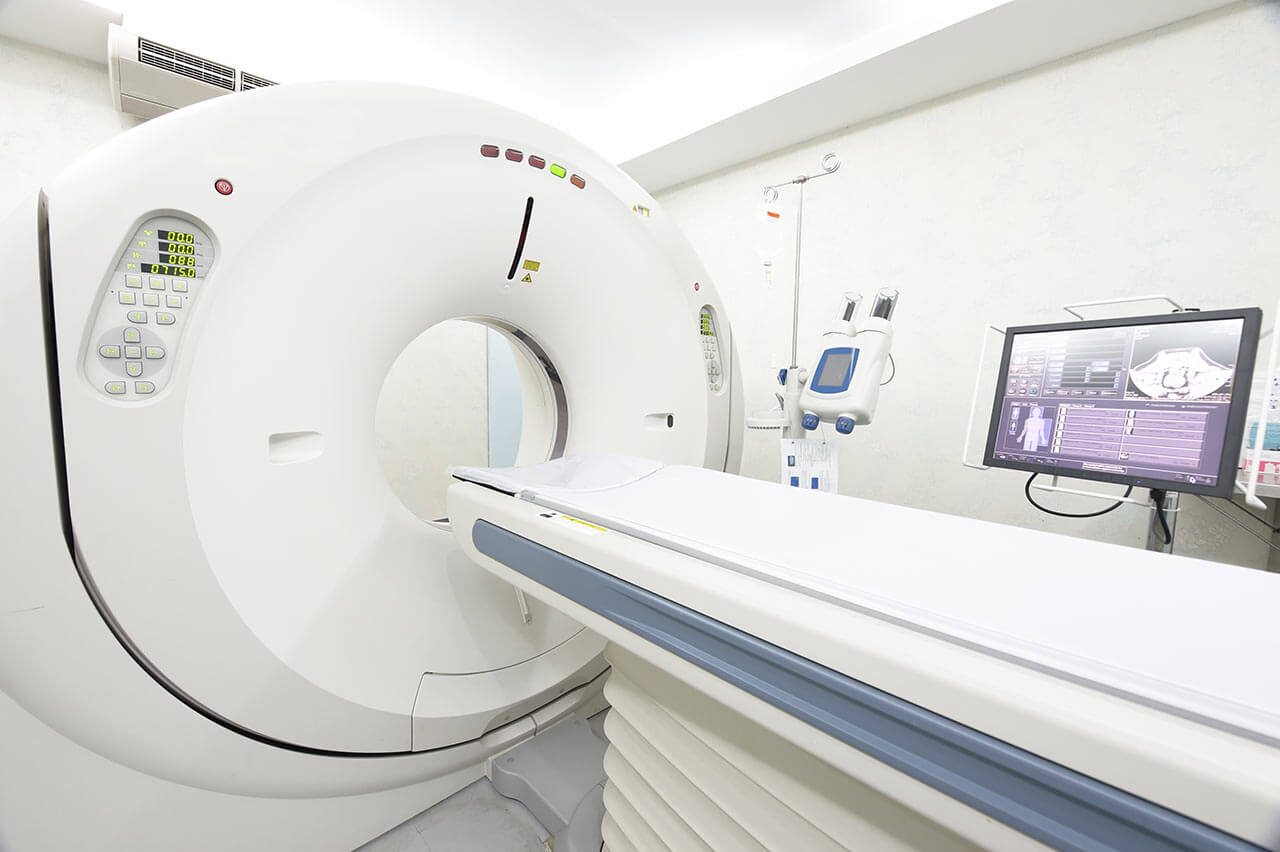
The program includes:
- Initial presentation in the clinic
- clinical history taking
- review of medical records
- physical examination
- laboratory tests:
- complete blood count
- biochemical blood analysis
- inflammation indicators (CRP, ESR)
- x-ray and bronchography
- electrocardiogram (ECG)
- high-resolution computed tomography (HRCT) (on indication 1200€)
- collected three sputum samples
- pulmonary function test
- blood gas analysis
- bronchial lavage
- nursing services
- development of individual treatment plan
Required documents
- Medical records
- Bronchoscopy (if available)
Service
You may also book:
 BookingHealth Price from:
BookingHealth Price from:
About the department
The Department of Gastroenterology, Infectology, Cardiology, Angiology, Pulmonology, Hematology and Oncology at the Bundeswehr Hospital Berlin provides the full range of preventive, diagnostic and therapeutic services in these medical fields. The department specializes in the diagnostics and treatment of gastrointestinal pathologies, infectious diseases, cardiovascular diseases, pathologies of the lungs and other organs of the respiratory system, as well as hematopoietic diseases. Cancer treatment is provided in interdisciplinary cooperation. The basis of the successful treatment is excellent diagnostic equipment that allows the doctors to make the most accurate diagnosis. The state-of-art systems for endoscopic and ultrasound examinations, a laboratory for functional diagnostics of the heart and lungs, as well as an advanced angiology laboratory for examining blood vessels are available here. Medical care is provided both on an inpatient and outpatient basis. The department's team of doctors works in accordance with current clinical protocols and makes sure that each patient receives effective medical care, taking into account his individual needs.The department is headed by Dr. med. Nicole Müller.
The primary focus of the department's work is on the diagnostics and treatment of benign and malignant hematopoietic diseases (these are leukemias, lymphomas, bone marrow disorders) and malignant tumors of the internal organs (these are stomach, bowel, pancreatic, lung, liver, breast and soft tissue tumors). In addition to such classic cancer treatments as chemotherapy and antibody therapy, the department provides symptomatic pain management and palliative care for the patients with advanced cancer aimed at improving their quality of life. The treatment regimen for each patient is developed at an interdisciplinary tumor board, with the participation of oncologists and specialists from the related medical fields. In complex clinical cases, the doctors from the Charite University Hospital Berlin are involved in the treatment process.
In the field of gastroenterology, a special focus is on the use of endoscopic methods of diagnostics and treatment. The department offers procedures, such as gastroscopy, colonoscopy, capsule endoscopy, double balloon enteroscopy, endoscopic retrograde cholangiopancreatography, percutaneous transhepatic cholangiodrainage and others. Endoscopic methods allow the doctors not only to examine the organs of the digestive system from the inside, but also to simultaneously perform therapeutic manipulations in order to eliminate the pathological changes. For example, the department's gastroenterologists use endoscopic techniques to remove small benign and malignant neoplasms, stop internal bleeding, eliminate stenosis, etc. It should be noted that the department's specialists cooperate closely with the doctors from the Department of General and Abdominal Surgery, thanks to which the experts have the opportunity to cooperatively consider the patient's clinical case and choose the most effective treatment option. The department also employs highly qualified nutritionists who select the proper diet and hold consultations on all issues in this area.
The department's important activity is the treatment of infectious diseases, including tropical infections. The department's specialists most often deal with the treatment of tuberculosis, AIDS, HIV and related diseases, malaria, osteomyelitis, endocarditis, meningitis, etc. To ensure the comprehensive treatment of infections, doctors from the Department of Dermatology, Allergology and Venereology are involved in the therapeutic process. The Infectious Disease Emergency Service is available around the clock.
The department's experienced cardiologists and angiologists provide modern diagnostics and treatment of cardiovascular diseases. The department has an innovative cardiac catheterization laboratory with the possibility of intravascular imaging, which allows the doctors to assess and effectively eliminate stenosis and other pathological changes in the blood vessels. In the case of suspected aortic stenosis or mitral valve regurgitation, as well as in the need for the MitraClip system implantation, close cooperation is maintained with the specialists from the Department of Cardiology and Angiology at the Charite University Hospital Berlin. Also, if coronary artery bypass grafting or heart valve replacement surgery is required, the doctors from the Department of Cardiac Surgery at the Charite University Hospital Berlin are involved in the treatment process. The department's cardiologists have rich experience in the implantation of pacemakers and event recorders, as well as in cardiac resynchronization therapy.
The department's therapeutic options are complemented by the treatment of lung and bronchial diseases, ranging from acute and chronic pathologies to sleep-related breathing disorders and cancer. In addition to general functional diagnostics, including spirometry, whole-body plethysmography and lung diffusion capacity measurement, non-specific provocation tests are performed. Sleep-related breathing disorders are detected with the use of a complete sleep screening. The department offers a wide range of endoscopic techniques for the diagnostics and treatment of lung and bronchial tumors. The treatment of lung tumors, for example, chemotherapy, is carried out in cooperation with the department's oncologists. If the patient requires a surgical resection of a lung tumor, then the highly specialized surgeons are involved in the therapeutic process.
The department's clinical focuses include:
- Diagnostics and treatment of gastrointestinal diseases
- Diagnostics and treatment of cardiovascular diseases
- Diagnostics and treatment of lung and bronchial diseases
- Diagnostics and treatment of diseases of the peripheral arterial and venous vessels
- Diagnostics and treatment of infectious diseases, including tropical infections
- Diagnostics and treatment of cancers of the internal organs and blood
- Emergency care (for example, for gastrointestinal bleeding)
- Round-the-clock medical care for patients with infectious diseases
- Other medical services
The department's range of diagnostic and therapeutic options includes:
- Diagnostic services
- Laboratory tests
- Ultrasound scanning of the abdominal organs, kidneys, and thyroid gland
- Color duplex sonography and contrast-enhanced sonography
- Anal and esophageal manometry
- pH-metry (acidity measurement) of the contents of the esophagus
- Endoscopic examinations
- Gastroscopy
- Colonoscopy
- Proctoscopy
- Endoscopic retrograde cholangiopancreatography
- Endosonography
- Capsule endoscopy
- Bronchoscopy
- Cardiac diagnostics
- Non-invasive cardiac diagnostics
- Electrocardiography (ECG), long-term ECG, bicycle ergometry
- Echocardiography, including 2D and 3D transthoracic echocardiography, transesophageal echocardiography, stress echocardiography
- Invasive cardiac diagnostics
- Left heart catheterization: coronary angiography, aortography
- Right heart catheterization: pressure measurement in the pulmonary circulation, oximetry, angiography of the pulmonary arteries
- Myocardial biopsy
- Intravascular ultrasound scanning and optical coherence tomography
- Non-invasive cardiac diagnostics
- Color-coded duplex sonography of the cerebral blood vessels and extremity blood vessels
- Pulmonary function tests, including spirometry and body plethysmography with lung diffusion capacity measurement
- Diagnostics of sleep-related breathing disorders (MESAM)
- Therapeutic services
- Drug therapy for benign diseases
- Chemotherapy and antibody therapy for cancers
- Endoscopic therapeutic procedures
- Gastroscopy
- Colonoscopy
- Proctoscopy
- Endoscopic retrograde cholangiopancreatography
- Bronchoscopy
- Interventional therapeutic procedures for heart disease
- Percutaneous transluminal coronary angioplasty
- Stent implantation, including using innovative drug-eluting stents
- Rotablation
- Closure of patent foramen ovale and atrial septal defect (Watchman-Flex, Amplatzer-Amulet, Amplatzer Okkluder devices)
- Implantation and use of mechanical heart support systems (Impella and Cardiohelp Maquet devices) in a cardiogenic shock or as a backup system during high-risk interventions
- Transvenous mitral valvuloplasty
- Transcatheter aortic valve implantation (TAVI) and interventional mitral valve reconstruction (MitraClip®, Cardioband®)
- Pacemaker and defibrillator implantation
- Cardiac resynchronization therapy
- Other diagnostic and treatment methods
Photo of the doctor: (c) Bundeswehrkrankenhaus Berlin
About hospital
The Bundeswehr Hospital Berlin enjoys a reputation as one of the leading medical facilities in Germany, where patients receive top-class medical care corresponding to the high standards of European university medicine. The medical center is an academic hospital of the Charite University Hospital Berlin – the largest and the most reputable in all of Europe. The main clinical focuses of the medical facility include emergency care, traumatology, urology, internal medicine, surgery, neurosurgery, neurology, nuclear medicine and others. The hospital offers 15 specialized departments, whose medical teams guarantee excellent treatment results, safety and an individual approach to their patients.
The hospital's staff consists of more than 1,100 competent employees. They work hand in hand to provide their patients with comprehensive and the most effective treatment. Of paramount importance is an individual approach to each patient and his clinical case. The specialists are always open to a dialogue with their patient, tell about the specificities of the upcoming treatment and its expected results. Whenever required, it is possible to involve experienced psychologists in the therapeutic process, who will help the patients to get rid of depressive states and set themselves up for a favorable treatment outcome.
The hospital has at its command state-of-the-art technical resources: equipment for minimally invasive interventions, diagnostic and therapeutic endoscopic procedures, navigation systems, advanced surgical microscopes, various laser devices, imaging systems for the accurate examinations and percutaneous interventional procedures.
The hospital has a quality management system, thanks to which it can strictly control the quality of patient care and other internal processes. In addition, the healthcare facility became the first Bundeswehr hospital, which was awarded the KTQ® certificate (06.02.2006). The KTQ® certification is carried out every three years and the hospital always passes it successfully. And then in 2000, the hospital was certified in accordance with the DIN EN ISO 9001:2000 standards. These achievements testify to the outstanding quality of medical care and the leading position of the hospital in the healthcare sector.
Photo: (с) depositphotos
Accommodation in hospital
Patients rooms
The patients of the Bundeswehr Hospital Berlin live in comfortable single and double patient rooms. Each patient room is equipped with an ensuite bathroom with a shower and a toilet. The patient room furnishing includes a comfortable bed, a bedside table, a TV and a telephone. To ensure a pleasant hospital stay, here is a library with an excellent choice of audiobooks, magazines and games. There is also a beautiful park on the territory of the hospital where one can enjoy peace, clean air and beautiful nature.
Meals and Menus
The hospital offers delicious and healthy three meals a day: a buffet breakfast, a hearty lunch and a light dinner. Every day, patients have a choice of three menus. Vegetarian dishes are also available.
If for some reason you do not eat all the foods, you will be offered an individual menu. Please inform the medical staff about your dietary preferences prior to the treatment.
Further details
Standard rooms include:
Accompanying person
Your accompanying person may stay with you in your patient room or at the hotel of your choice during the inpatient program.
Hotel
You may stay at the hotel of your choice during the outpatient program. Our managers will support you for selecting the best option.




